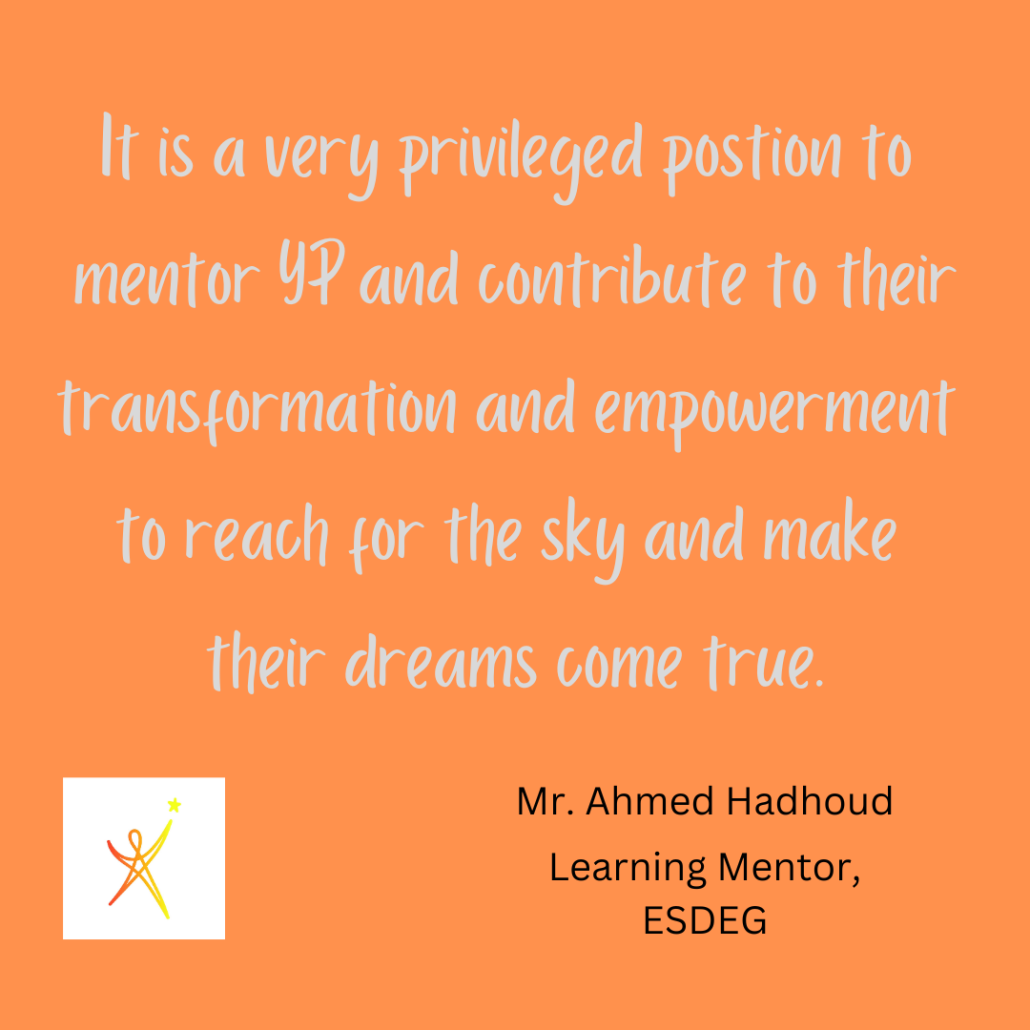Suchismita Majumdar, Communications & Policy Officer, ESDEG
Mentoring is an effective way to support young people in their formative years. If you are wondering what mentoring entails – according to MentorCliq “Mentoring is any form of social learning where someone with more experience (a mentor) helps guide the learning and growth of someone with less experience (a mentee)”. By this definition we can say that youth mentoring is the practice where a mentor (someone with more experience, life skills, education/training) is assigned to a young person (a mentee) to help them navigate through their formative years by helping them in their personal, educational and career development.
How did ESDEG get involved in youth mentoring?
Education and Skills Development Group (ESDEG) was formed in 2005 to bridge the attainment gap of the refugee and migrant children in the schools of West London. It is through these after school homework clubs that ESDEG staff realised that ethnic minority children and young people (YP) often struggle in the English education system fighting stereotyping, unconscious racial bias, institutional racism, school exclusions, bullying, violence etc. These youngsters are the classic example of intersectionality where race, class, gender, special needs, disability and mental health needs intersect with one another and overlap. Multiple odds are stacked against them including poverty, overcrowding in council housing, lack of positive role models in the family especially in single parent households, gang affiliations, peer pressure and crime. For children with special needs the situation is much worse. Apart from help with their academics, the YP needed additional support in other areas of their lives as well.
Responding to this need, in 2016 ESDEG’s Mentoring Programme was launched whereby we reached out to local schools and started forming mentoring partnerships with them. In 2022, ESDEG mentored a total of 122 students in 6 schools of West London out of which 3 are primary schools and 3 secondaries spread across the boroughs of Ealing, Brent and Hounslow. Apart from schools, mentoring also takes place in two community centres in the deprived pockets of West London in the evenings.
According to ESDEG’s Learning Mentor Mr. Ahmed Hadhoud “Schools do a great job selecting the children who are going through complex issues. During our mentoring sessions, we often get children who are being bullied, beaten, come from broken families, have mental health issues, behavioural issues, children who are hungry, youth in contact with the police and social services or care experienced. Our sessions are welcoming, inclusive and aspirational.
The Mentoring Sessions
Mentoring is usually done in groups and 1-2-1 sessions as well. It depends on the needs and preferences of each mentee and mentor’s professional judgement. Mr. Hadhoud adds “When working with young people, we have to be engaging and challenging at the same time, otherwise they would lose interest and tune out. We use educational games to instil – resilience, life skills, ethical values, self-belief and emotional intelligence. We encourage YP (young people’s) voice and leadership empowering them to feel valued and heard.”
How ESDEG’s Mentoring Programme Helps the YP
ESDEG’s mentoring supports young people with their emotional, behavioural and mental wellbeing and impacts them in the following ways –
Empowers them to express their views, wishes and concerns by providing a safe space;
Bolsters their confidence and self-esteem and raises their aspirations;
Increases their awareness about their rights, choices and options available to them;
Facilitates peer support groups that enable YP’s independence, altruism and self-reliance
Contributes significantly to reduction/prevention of fixed, permanent and informal exclusions and detentions from schools;
Improves motivation and reduces attainment gap;
Helps them acquire new soft skills including communications, time management, personal excellence, financial Literacy to name a few;
Teaches them self-control, anger management, collaboration and conflict resolution;
Provides positive role models;
Referrals to counselling and other support services when necessary;
Helps children manage the transition from primary to secondary schools which can often be overwhelming;
Helps YP make informed decisions about their education and career choices.

Impact of ESDEG’s Mentoring Programme
Data analysis of feedback collected from a sample of 28 YP reveal
86% students reported avoiding school exclusions;
79% students avoided joining gangs and participate in crimes;
82% youngsters improved their behaviour;
89% YP raised their aspirations;
89% students improved their school attainment;
63% YP gained self-confidence.
We want to thank our funders who have made it possible for us to run this programme for the last 7 years. In fact, we are seeing increased demand from community leaders, schools, parents and even the children themselves for more mentoring services. We are working to expand the programme and bring in more trained mentors so that we can reach out and help more children from the deprived areas of West London.

